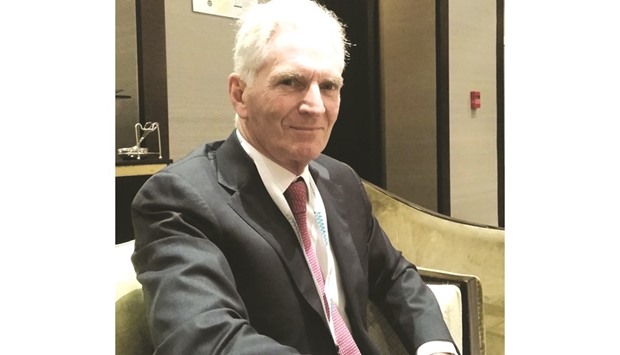Low taxation and the ‘new normal’ of the oil, which has been depressed since 2014, have forced the Gulf Cooperation Council (GCC) members to find new revenue streams as value added tax (VAT), according to Dr Nasser Saidi (pictured), a former chief economist of the Dubai International Financial Center.
As a percentage of GDP (gross domestic product), the average tax take across the region is about 13%, much lower than other emerging markets, Saidi, now the president of Nasser Saidi and Associates, told a seminar on VAT implementation in the GCC.
Highlighting several areas that governments should prioritise when implementing VAT, he said there is a need for diversified, balanced sources of taxation to ensure not only revenue generation but also buoyancy in the tax system.
Finding that the current tax system is very much based on traditional goods and services, he said “something like 30% of the goods and services we consume today didn’t exist 20 years ago, so what you need is a tax system that is flexible and can capture what is happening in the digital economy.”
Also highlighting that the tax efficiency ratio across countries in the Middle East is very low compared to emerging markets, he said the region’s VAT regime should have fewer exemptions, suggesting a look at the New Zealand model.
“Taxes always introduce distortions and when you do that for things like education and health, you introduce distortions into these markets, so you’re better off having very few exemptions,” he said.
Rob Dalla Costa, director, VAT leader KPMG (Lower Gulf) said VAT is not meant to be a cost to business, but it could become one if not prepared well and if there are no systems and processes in place to recover the VAT on the business inputs.
Finding that the staggered introduction of VAT across the region as a risk, Costa said it is going to complicate the business.
Gop Menon, head of finance for Thomson Reuters Middle East and North Africa, said VAT isn’t just a finance problem particularly when dealing with this region, where the framework is coming in new; nor is it going to be all clear and all perfect from day one.
“Whilst the governments here can learn from the experience of other regions, there will be a lot of nuances in this area. With our experience in Egypt, some of our services fell into grey areas and it took us time to understand whether they were in or out of scope,” according to him.
Asking businesses to look seriously at VAT now, Clare McColl, VAT partner, KPMG (Lower Gulf) said the cash-flow implications of VAT need to be considered. “There is a lot to think about, and a lot to do. The key to success will be project planning over the next year and the earlier that businesses start to understand the VAT impact and to plan how to manage it effectively, the better,” she said.

gcc

